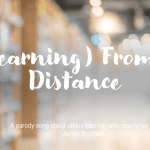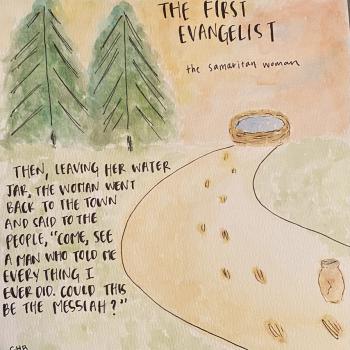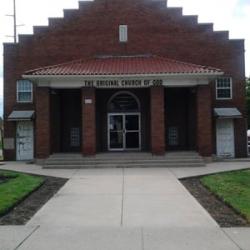Recently in my Sunday school class we talked about the possibility of inviting others to join us from further afield than has normally been possible. Meeting via Zoom, we have had regular attendees join us from the car or while otherwise not at home, and even one longstanding but long-relocated church members start coming. In short, the class has grown since the pandemic changed how we meet, and has made new ways of meeting possible. We this wondered whether this might not be something worth expanding even further, by inviting people who could never have attended in person because they live too far away.
After that discussion a fellow Patheos blogger, Erin Wathen, wrote about church deserts and the future of online community. To summarize the key point of what she wrote (while recommending that you click the link and read the whole thing), just as there are places that we refer to as “food deserts” (places where options for healthy eating are not readily available) there are places where the same is true spiritually. In the United States we may have churches on every corner but that doesn’t mean that a welcoming community is available or one that provides something other than spiritual “fast food.”
Feeling inspired by the convergence of these two, I shared the Patheos post I linked to and summarized above on my blog’s Facebook page, together with an invitation to my Sunday school class. Almost immediately, someone accepted the invitation. They attended. It was delightful. And so I thought I’d share this, not least because I find myself comparing how well Zoom Sunday school has been going, even thriving and expanding, with my earliest attempts at returning to the classroom for “mask to mask” teaching. Muffled voices diminished further as some are present in person and others via Zoom. Connecting via the internet has challenges and drawbacks, but it also has considerable disadvantages.
Online connection can help address the issue of spiritual deserts or church deserts (just as the possibility of ordering food online, if it becomes more affordable, can become something of a solution to food deserts). The internet can perhaps also provide remedies for educational deserts, as there are places where school systems are underfunded, as well as communities and individuals who may not live far from an educational institution of very high caliber, but not have it be in the range of affordability. The current technology makes us aware that other things besides physical proximity or distance matter, and sometimes matter most, when it comes to accessibility of resources, whether material, spiritual, or educational.













